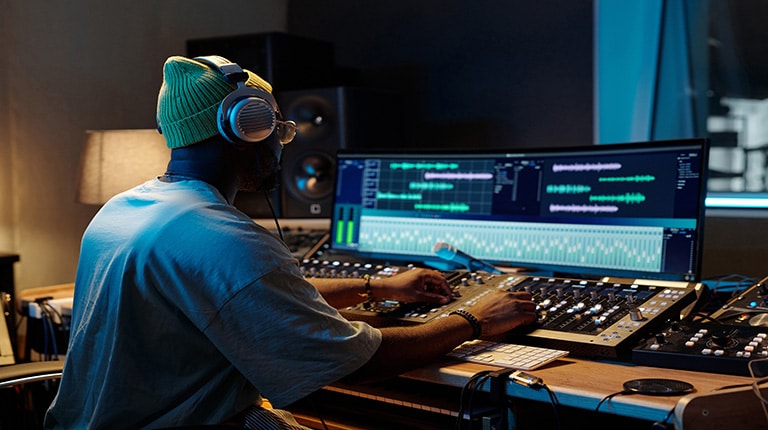What do you know about the production that goes into creating audio dramas? You can read about it here in this detailed guide.
Did you know that October 30 is World Audio Drama Day?
From radio plays to audio drama podcasts, people have tuned into audio dramas for decades. Audiences have come to expect the same quality out of these stories that they do from TV, film, and theatrical dramas.
Production value adds a lot to the quality of your storytelling. Keep reading for four tips on how to bring this production value to your next audio drama.
1. Develop a Compelling Script
All of the best audio dramas have one thing in common: they tell incredible stories. All of the expert audio production in the world won’t save a script whose story doesn’t engage the listener.
Invest right away in working with writers who understand the genre and the medium you’re working in. If you’re writing the show yourself, get some training or experience in writing for audio-only formats. It’s very different from writing for television, film, or theater; after all, your audience has no visual cues to guide them through the story.
Once you have a draft of your script, read it out loud. If you can, get some actors together and have them read your script. You’ll notice things you never would have if you only read the script on the page. Make edits based on your discoveries.
2. Plan Your Soundscape
As we mentioned earlier, your audience will rely solely on audible cues to understand where your characters are located and what’s happening in the world around them. While dialogue tells a part of this story, the rest comes from your soundscape.
Some sound effects will help you clarify your setting. The background noises in an office building, for example, are very different from those of a public park.
Other sounds help you clarify the action in your story. If someone is running, typing on a computer, or trying to use an ATM, you can use sound rather than relying on dialogue to tell your audience what’s going on.
3. Use High-Quality Recording and Editing Equipment
By starting with high-quality sound files, you’ll save your team many hours of work on the back-end with sound editing, mixing, and mastering.
If you can, have all your performers record on similar-quality sound setups. One of the easiest ways to do this is to rent out studio space and have everyone record in the same session. If this isn’t possible, have everyone send you test recordings to verify their sound quality before you begin your recording sessions.
With these recordings in hand, your editor will be able to edit the recordings together and smooth out any rough edges. If no one on your team has editing skills, don’t be afraid to hire audio editing services. Investing in this area of production will significantly increase the quality of your final product.
4. Build Realistic Deadlines
As anyone with project management experience knows, staying organized is key to completing things on time. Use task management software to keep the team aligned and updated on everyone’s progress.
Also know that production always takes longer than you think it will at the start of the process. Anticipate delays so that you’re not surprised when they come up. This will keep you from rushing and sacrificing quality in order to meet a tight deadline.
Start Creating Amazing Audio Dramas Today
Keep these four things in mind, and you’ll be well on your way to creating one of the best audio dramas on the market. Help your team create incredible content by starting with a quality script, using professional recording and editing tools, and being realistic with your deadlines.
Looking to hire audio services for your next audio drama podcast? Fill out our contact form, and we’ll get in touch about working together!



